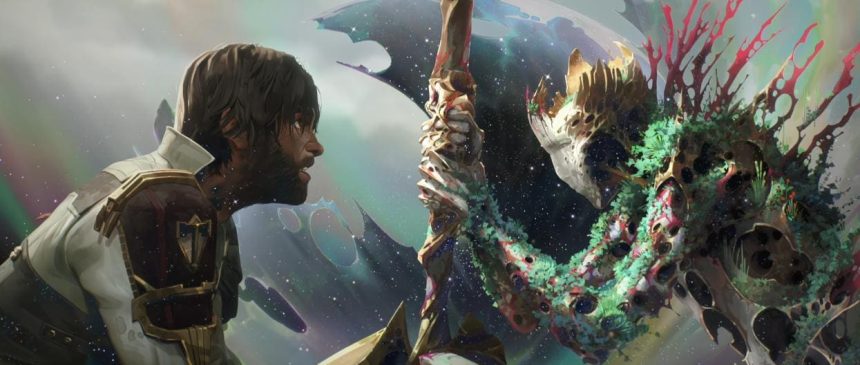The finale of Arcane’s second season on Netflix left a lasting impression, showcasing stunning visuals and artistry that rival few other shows in the animated space, a hallmark of the collaboration between Riot Games and Fortiche. Each moment of the finale felt worthy of a screenshot, emphasizing the series’ status as a visual masterpiece. However, while the aesthetic elements certainly shine bright, the storytelling aspects in this season created a more complex reaction among viewers. While still enjoyable, the narrative struggles with pacing and coherence ultimately prevented the season from reaching the same heights as its predecessor.
One of the most significant issues noted in this season was the rushed pacing, which made the intricate plot hard to follow. With so much happening in a condensed timeframe, it became difficult to maintain emotional investment in the characters and story arcs. Many viewers experienced a sense of mixed feelings, torn between the desire to immerse themselves further into the world of Arcane and concerns of potential disappointment. This fear was exacerbated by the compressed storytelling, which brought an overwhelming amount of plot in just a few episodes, raising questions about the overall narrative cohesion.
Season 2 introduced multiple new storylines and characters that contributed to its complexity. With the emergence of the Black Rose, an accelerated Jinx storyline that seemed to undermine her character development from Season 1, and Viktor’s transformation into a dark figure chasing power, the main conflict became muddied. The war between Piltover and Zaun, which was superficially addressed, was complicated further with the introduction of ambushes by the Noxian warlord Ambessa and the involvement of various supporting characters. The absence of time spent on character relationships and background rendered critical developments less impactful than they could have been, leading to confusion among viewers.
The narrative’s labyrinthine twists included dimensions, betrayals, and unpredictable relationships that often diluted the stakes. Ekko and Heimerdinger’s experiences in a Utopian alternative universe, while intriguing, felt disconnected from the core storyline and moved the focus away from significant confrontations. Relationships among characters became convoluted, such as the betrayal plots involving Mel, Caitlyn, and Ambessa, leading to severe consequences that seemed rushed or unwarranted. Such rapid shifts denied viewers the opportunity to fully comprehend character motivations and emotional stakes, creating a disconnect between the audience and the story.
A particularly disappointing aspect of the season was the treatment of the sibling relationship between Vi and Jinx. Rather than building on the complex animosity established in Season 1, their dynamic transformed into one that lacked the tension and dramatic weight viewers had been awaiting. Jinx’s characterization shifted drastically, moving from instability to a more subdued persona, and their ultimate conflict seemed resolved too easily, denying the emotional resonance that had been established previously. The transcendence of key dramatic moments, like Jinx’s possible demise, felt underwhelming, depriving audiences of a heartfelt culmination of their struggles.
The season culminated in action-packed resolutions that, while visually striking and thrilling, overshadowed the personal conflicts of pivotal characters like Vi and Jinx. Their struggles became mere background elements to the more centralized conflicts with other characters and overarching plot threats. This disengagement from their storyline resulted in a somewhat anticlimactic payoff, leaving numerous loose threads despite grand heroic resolutions by Jayce, Ekko, and Mel. Ultimately, viewers were left pondering whether there was enough room left in the narrative to fully explore the richness of their stories, which felt particularly squandered.
Despite its shortcomings, Arcane’s second season succeeded in moments of brilliance that included powerful storytelling dynamics, stellar voice performances, and remarkable visuals. While it did not match the perfection of its first season, it offered enough excitement and intrigue to remain entertaining. The realization that the season could have benefitted from an expansion into multiple arcs left audiences yearning for what future seasons could potentially explore, foreshadowing the possibility for continued depth and character development. As viewers look forward to the next steps from Riot and Fortiche, they hold onto the hope that the lessons learned can guide the storytelling in more satisfying directions.



